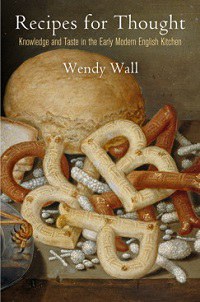Reading and Receiving the Early Modern English Mind
DOI:
https://doi.org/10.22029/ko.2016.976Abstract
Wendy Wall’s recent work analyses a number of English recipe books written in the period between 1570 and 1750. It is crucial to Wall’s enquiry that the term “recipe” is understood in its early modern context; its etymology is sketched out as derived from the Latin recipere, meaning “to take back or receive”. Wall builds upon the non-culinary aims for the recipe book by examining its potential to communicate political allegiances, scientific findings, and conduct other intellectual enquiries, in order to ultimately argue that early modern recipe books can be used as a guide to early modern thinking. The first, second, and final chapters are the most successful in making this case. The opening two chapters analyse the concepts of “taste” and “wit” to demonstrate the personal and aesthetic aspects of communication through recipe writing, while the final chapter discusses the concept of “proving” recipes to validate their usefulness in order to consider recipe writing as a knowledge-sharing system.

Downloads
Published
Issue
Section
License
All articles (not book covers) in KULT_online from issue 50 on are published under the license Creative Commons Attribution 4.0. All published articles may be reused under the conditions of the license, particularly for commercial purposes and through editing the article (Human-Readable Summary). All authors (have) permitted the publication under the above mentioned license. There is no copyright transfer towards KULT_online. For all book covers specific rights might be reserved, please contact the respective publisher for any lawful reuse. All contributions published in issue 1-49 of KULT_online are free available online and protected by the German Copyright Law.



